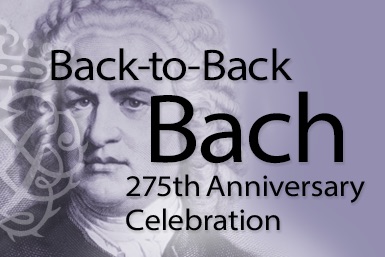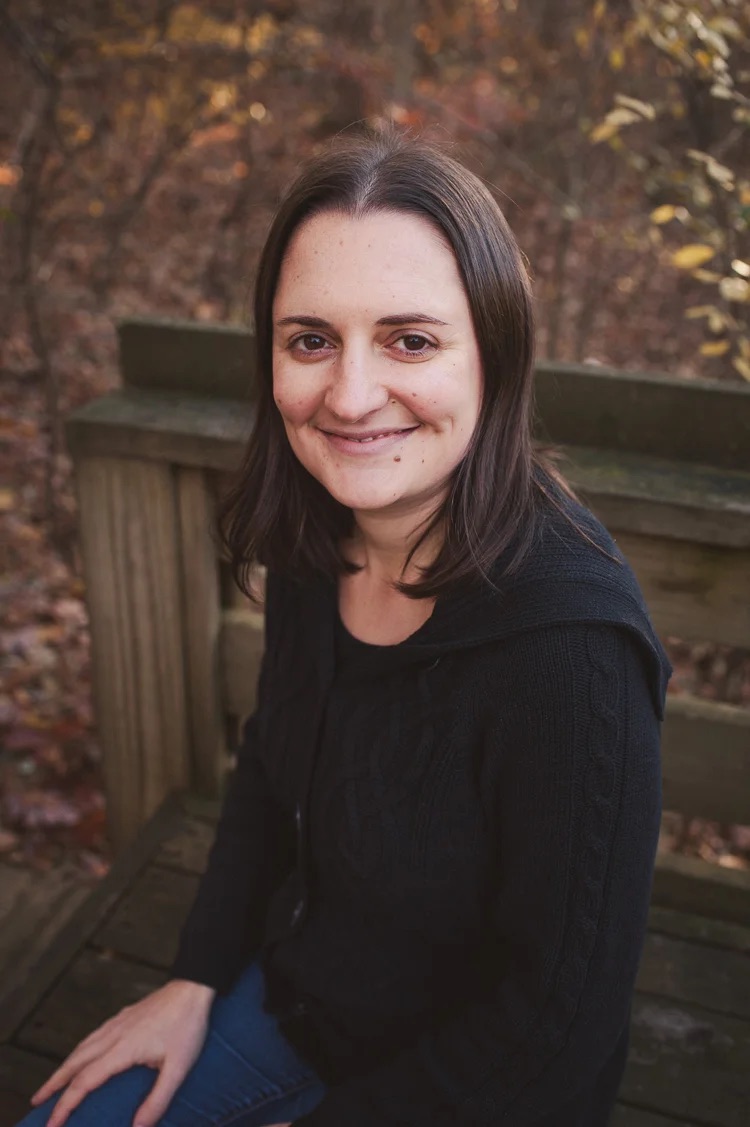BACH Celebrates Bach’s 275th with Two Choral Masterworks

The Baroque Artists of Champaign-Urbana (BACH) kick off their 29th season on Sunday, November 16, with a program entitled “Back-to-Back Bach,” featuring two of J. S. Bach’s choral masterworks—his Magnificat in D, BWV 243, and Gloria in excelsis Deo, BWV 191. The concert is given in honor of the 275th anniversary of Bach’s death on July 28, 1750.
BACH is central Illinois’s premiere amateur chamber choir focusing on the music of the Baroque era and beyond. Founded in 1996 by Dr. Chester L. Alwes as a project-based professional ensemble, BACH is now a thriving nonprofit community organization. Dr. Sarah Riskind, the third conductor to lead the group in its history, is now in her fifth year as music director. We spoke with Riskind to learn more about BACH’s upcoming program and the rest of their 2025–26 season.
While it might seem odd to commemorate the anniversary of a composer’s death with two of his most festive works, this choice was intentional, particularly as the concert falls just before the holiday season kicks off. “I wanted to choose pieces that really brought in a joyful spirit,” Riskind explained.
Magnificat in D, BWV 243, was the first large-scale choral work Bach composed after being appointed at the Thomaskirche in Leipzig in 1723. It was originally intended as a Christmas piece, with traditional German Christmas hymns interpolated in between the movements. Bach revised the work in 1733, removing the Christmas hymns to make it applicable year-round and transposing it down a half step to D major to accommodate the addition of trumpets.
The other work on the program is Gloria in excelsis Deo, BWV 191, which most will recognize from its use in Bach’s Mass in B Minor. However, the Gloria was written 16 years prior as part of an extended Missa brevis (Kyrie–Gloria Mass of 1733, BWV 232). In 1742, Bach reworked the nine-movement Gloria, turning it into the three-movement Christmas cantata heard on this concert.

BACH Music Director Dr. Sarah Riskind
“Both of these pieces have a strong Christmas connection,” Riskind explained, “even though they’re not the first piece people think of when they want Baroque Christmas music—usually that’s Handel’s Messiah.”
Riskind also chose these two pieces because they are works she’s wanted to conduct for a long time. “The Magnificat has kind of been on my bucket list for a long time,” she said. “The Gloria, maybe not specifically, was on my bucket list, but the Mass in B Minor is just one of the greatest choral masterworks of all time. I had some really special, memorable experiences with the Mass in B Minor when I was younger, and so it just really brings me a lot of joy to work on those pieces again.”
Similarly, Riskind has early fond memories of the Magnificat, having sung the “Sicut locutus est” fugue in music camp in middle school—an experience that “really made a strong impression,” she said.
In addition to marking her first time conducting these pieces, this concert features the largest orchestra Riskind has conducted so far as music director of BACH. “I love the festive larger orchestra that we get with both of these pieces,” she said. In addition to the 40-person choir split into five voice parts, the orchestra includes strings, oboes, flutes, trumpets, and timpani.
Why are these two pieces such favorites 275 years after Bach’s death? Riskind chalks it up to the “amazing counterpoint” in both works. “There are a number of fugues of different types. The aforementioned ‘Sicut locutus est’ is a really nice, stripped down, simple fugue that represents the older style, with only the continuo accompaniment. Then we have more elaborate ones, like ‘Et in terra pax’ and ‘Et nunc et semper’ in the Gloria.”
She also cites the various obbligato moments in the Magnificat, such as in the soprano aria, “Quia Respexit,” which features a soul-stirring solo oboe part. “The flutes are really heavily featured in certain movements, creating a resally stunning contrast,” she added. “Even though, I would say, when I think of those pieces, I think of trombones, trumpets, and timpani—D major joyful sounds.”
The Magnificat is also quite succinct, running at just around 30 minutes, yet it is dense with musical ideas and text painting. “I love how in the Magnificat the movements are not very long, but they’re each really distinctive and well structured,” she continued.
During her tenure so far, Riskind has worked to preserve BACH’s grounding in music from the Baroque period. “I have focused a lot on balancing tradition and innovation,” she said. “The repertoire that I’ve programmed has continued to keep Baroque music as the core, but I seek out a lot of connections between earlier music and more recent music, such as the Buxtehude–Shaw program, where we had Caroline Shaw’s To the Hands, based on the Buxtehude [Ad manus cantata].”
She also hopes to introduce audiences to music from the Baroque, Renaissance, and Classical periods by composers who have been neglected by history, such as women and composers of color. “I get really excited because there is such good music from those times that may not have been championed as much as it deserved during that time,” she said.
Under her leadership, BACH has also worked to get out into the community more, with innovative performances in more relaxed settings. For instance, they have performed at retirement homes and caroled at Carle Hospital. They even sang a concert of Romantic part-songs at a venue in Monticello, where they served ice cream during the performance. She and the BACH board are also in the process of developing a K–12 outreach program in schools, working collaboratively with teachers to increase the program’s impact.
The rest of BACH’s 2025-26 season continues to uphold the organization’s traditions while also exploring new or forgotten works. On November 30, BACH holds its annual Messiah sing-along at First Baptist Church in Savoy. Then, on March 8, the choir will perform a concert of choral favorites spanning the Middle Ages to the present day. On May 31, BACH will highlight a lesser-known contemporary of Mozart, Marianna Martinez, in their program centered around Psalm 42. Finally, the chorus will open the fourth-annual Five Cities Baroque Festival with Bach’s cantata BWV 106, “Gottes Zeit ist die allerbeste Zeit,” along with other works, conducted by Riskind and Five Cities artistic director Nate Widelitz.
Don’t miss “Back-to-Back Bach: 275th Anniversary Celebration,” Sunday, November 16, at 4 pm at Grace Lutheran Church in Champaign. Tickets can be purchased from BACH’s website.



